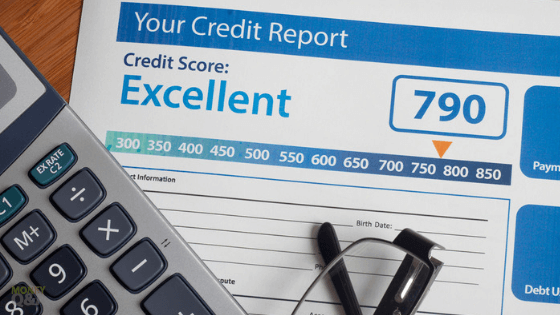When they lend money to people, banks first need to determine the risk factor involved, and in order to do this, they will check your credit history. Your credit score is used to predict your future behavior and determine your financial habits. Unsurprisingly, a bad credit score will greatly reduce your borrowing opportunities. Here are five steps that you need to consider for building your credit history.
5 Steps to Building Your Credit History
Even if you are a responsible spender, that doesn’t mean you have a credit history. For example, if you have never borrowed money before, you won’t have much of a credit history, so the banks will not be able to determine the risk factor of lending to you. As such, you need to start building your credit history in the first place.
1. Know What Influences Your Credit Rating
Contrary to popular belief, it’s not only major financial services, such as mortgages, credit cards and bank account overdrafts that influence your credit score. Many contracts, including those you might have with gas and electricity companies, also report your payment performance to the credit rating agencies.
By knowing what influences your credit rating, you may be able to build up your credit history without having to take out loans or credit cards. Paying your utility bills on time will help, as will paying things like monthly car insurance premiums and mobile phone contracts.
2. Open a Specialized Account
If you’ve just left high school, no potential lender will expect you to have a credit history in place, but now is the best time to start building one up. After all, it can take many years to build up an impeccable financial reputation insofar as the banks are concerned. Likewise, it can take many years to recover from a bad credit rating.
One of the first things students should do before starting further education is to open a specialized account, preferably with a 0% overdraft that allows them to borrow money whenever they want just by using their debit account. By paying off the overdraft every month in full, you’ll avoid paying interest and boost your credit score in the process.
3. Know When to Borrow
If you have an overdraft, a credit card or any other kind of borrowing facility, you should never treat it as an everyday part of your budget. Credit should only ever be used to help with temporary cash-flow issues, rather than for things like impulse buying or purchasing things that you simply can’t afford.
Few successful people get rich without ever borrowing money, and there’s absolutely no doubt about the financial opportunities afforded by borrowing. Nonetheless, borrowing money is all about responsible spending but, if you don’t have financial discipline, you should perhaps steer clear of credit cards and other loans
4. Keep a Look out for Errors
Most people never check their credit scores themselves, but it’s not a bad idea to keep an eye on it every month. Not only will watching your credit rating increase help to motivate you to become more financially responsible; it will also give you the chance to locate any potentially costly errors.
There are lots of companies out there which allow you to check your credit score, and some even allow you to do this for free. Take Credit Sesame, for example, you can sign up and get full free credit score check. You will be able to see all the information held on your credit report, and if you spot any errors, they will even provide you with support on getting the errors fixed or removed.
5. Maintain Independent Finances
It’s not uncommon for a bad credit rating to be a result of someone other than yourself. For example, if you’re sharing a flat, some of your contracts, such as gas, electricity, and broadband might be linked with other people living with you. In such cases, if the person responsible for paying the bills doesn’t do so on time, it could reflect badly on everyone else on the contract.
The same applies to those in relationships where one partner tends to be financially irresponsible. As such, if you want to protect your finances, you should keep them as independent as possible.
Of course, it can be hard to monitor other people who are affecting your credit score, as you can only assume that they are paying things on time. However, there is something called credit monitoring which will send you instant notifications of changes to your credit report, so if someone else is affecting your credit rating, you’ll be notified instantly and you’ll be able to step in and make the necessary changes to ensure no further negative effects on your own credit score.
The above tips will help you to start building up a good credit rating as soon as possible. Nonetheless, things can go wrong, in which case you should try to get things back on track as soon as possible. After all, potential lenders can access the last six years of your credit history, so it’s strongly advisable that you stay informed and fix any problems as quickly as you can.

